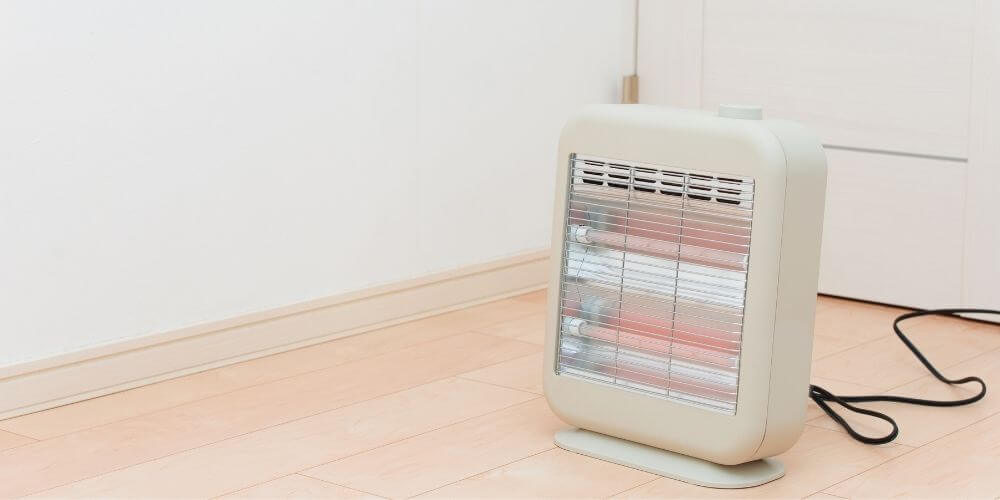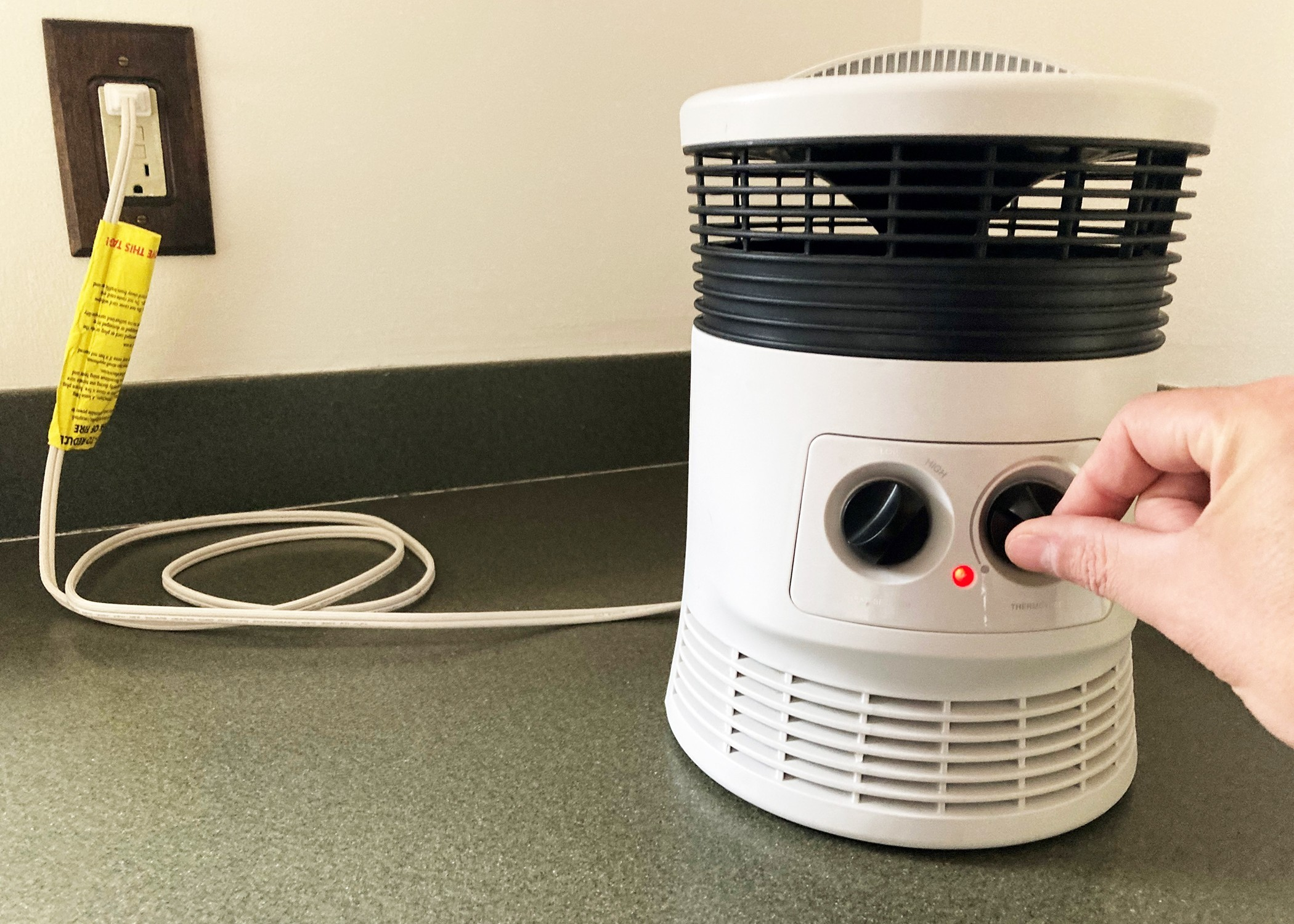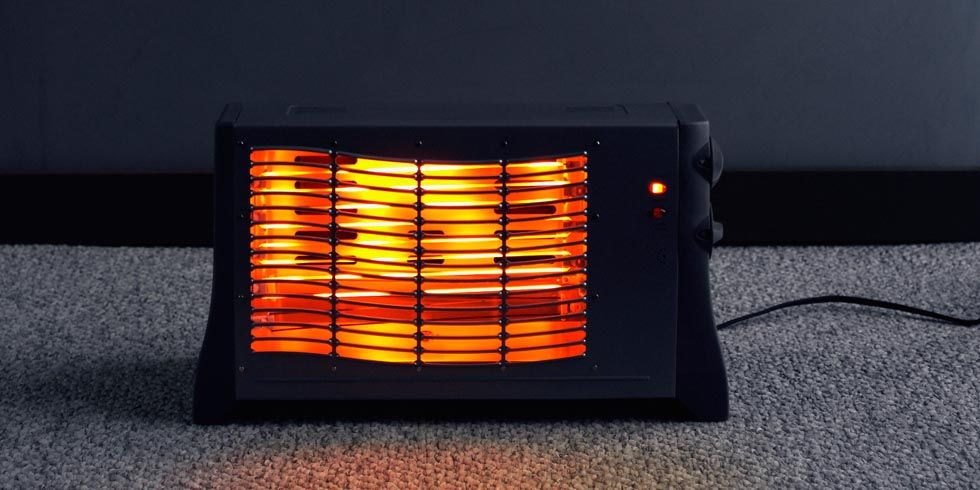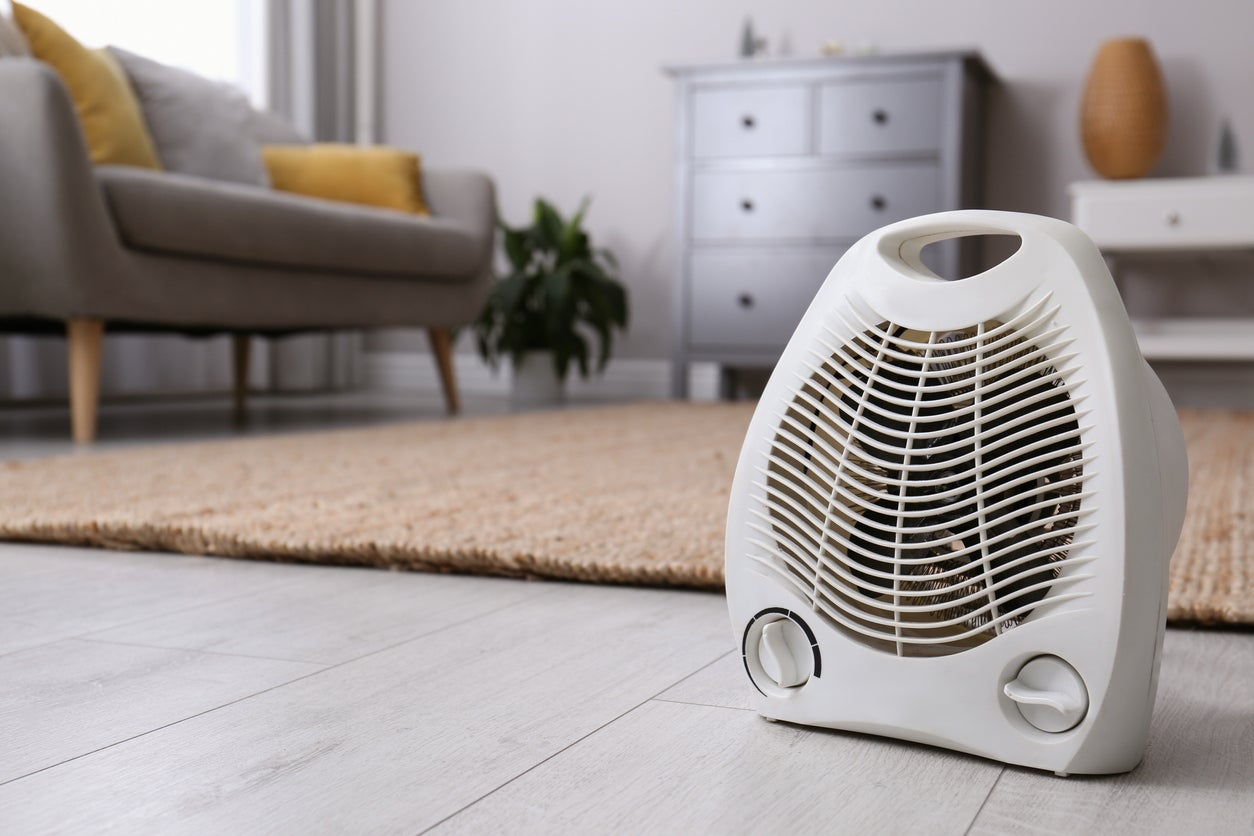As the weather cools down, homeowners are looking to boost home temperatures, and adding electric space heaters appears to be the easiest option. Space heaters are essential for heating cold rooms during winter. Even if you have a central heating system, space heaters can help you target a specific area to heat. But how much electricity does a space heater use?
Let’s figure out how many watts a space heater uses, estimate how much it will cost you to run a space heater, and discuss the tips to reduce the energy usage of a space heater.
How Much Electricity Does a Space Heater Use?
Like many appliances, the amount of electricity a space heater uses depends on its size and energy efficiency. On average, space heaters use 1,500 watts of electricity. That is, they’ll use around 15 amps and connect to at least a 100-volt outlet. However, the utility does not charge for the monthly electric bill in amps. It charges for electricity consumed, measured in (kWh) kilowatt-hour.
Image Source: heatercool.com
Therefore, to figure out how much kWh a space heater consumes and how much it costs to run it, multiply the heater’s watts rating by how many hours per day you use it. Then divide the result by 1,000 to convert it to kWh.
The duration in which you will be using your space heater depends on how many watts of electricity it will use in the long run. For instance, suppose you use your 1,500-watt space heater for 8 hours daily. In that case, your space heater will consume (1,500W x 8 hours) ÷ 1000 =12 kWh.
Depending on the wattage, electric space heaters use different amounts of electric energy, and to determine the level of energy consumption your space heater should use, consult the energy efficiency and power rating of the given product provided on its label.
Does a Larger Space Heater Use More Electricity?
Space heaters with bigger sizes need more electricity to work than normal heaters that are used for many different works. Size can do most work for example power consumption depends on weight, shape, and design.
Other factors outside your control, like the temperature and the size of the room your space heater is warming, also factor into its power consumption.
How to Determine the Cost of Electricity a Space Heater Uses
Image Source: ecoenergygeek.com
The local electricity tariff rates affect your electricity costs in different ways. If the utility company charges $0.24 per kWh, your 1,500W-space heater can cost 12kWh x $0.24 = $2.88 per day. These costs make your monthly bill around $90 by giving you 8 hours of daily usage.
Space heater electricity costs depend on many different factors that are used for calculating bills. Space heater costs can vary based on wattage requirements, with the help of different factors like local utility rates, daily runtime, and energy-efficient features you can determine total electricity expenses.
Infrared Space Heaters Vs. Convection Heaters
1. Infrared Space Heaters
Infrared space heaters heat objects and people. Infrared heating uses radiation as a method of emitting heat which is directly absorbed by the objects in their path. However, the flaw in infrared heaters is that the infrared waves will quickly provide heat to the nearby projects but will not heat the air. Infrared heaters are considered safe and the most efficient of all.
Because the infrared heater technology directly heats objects, it is more about proximity to the objects. Most infrared heaters are rated to heat people or objects up to 10 or 15 feet away. The 10-watt per square foot rule doesn’t apply.
2. Convention Heaters
Unlike infrared heaters, convection heaters heat the air. Some are bare metal coil types, but most are ceramic space heaters. They have elements that get hot, and the heat is spread with natural airflow or a fan’s help. Therefore, the 10 watts per square foot rule applies to this type of space heater.
Tips to Help Reduce Power Consumption of Space Heaters
Image Source: army.mil
1. Choose the Space Heater with Energy-Efficient Features
Not all space heaters are the same. Some have features like a timer that ensures the heater turns off automatically at the set time and a digital thermostat that keeps the heat at a temperature that keeps you warm without overheating and wasting energy. Others also have economy mode or Eco mode, which means your space heater will have two heat settings that automatically shift to a lower setting when the thermostat set point is reached and to a higher setting once the room cools off.
2. Get Some Blankets and Warmer Clothing
This may seem simple, but it can make a big difference! Using sweaters, blankets, or warm slippers to warm you up instead of turning on the heater can save you the electricity a space heater uses.
3. Do Not Heat Rooms that aren’t Being Used
You shouldn’t leave your space heaters unattended. You can save money by turning off electric heaters after leaving a room.
4. Monitor Your Room’s Temperature with a Thermometer
Most space heaters do not have thermostats or temperature controls; even those tend to be challenging to read or inaccurate. Use a separate thermometer to accurately monitor your room’s temperature and prevent overheating.
5. Determine when to Use Central Heating Vs. Your Electric Space Heater
A space heater is designed to allow you to target heating efforts to specific rooms hence saving you money on heating. To determine which is more cost-effective, you can compare the cost of running the electric space heater per day with your average central heating system heating costs. Also, a central heating system might be better if you use multiple space heaters in your home for more than a few hours a day. Your central heating system is the best way to heat your entire house.
6. Keep the Doors Closed
Space heaters should be used in rooms that can be closed to ensure you aren’t heating your rooms in vain. Keep the doors of the rooms you’re heating closed so that the heat produced doesn’t leak out to avoid wastage.
7. Size Your Space Heater Properly
The average 1,500W space heater is suitable for a 150-square-foot room that is 10 watts per square foot. A space heater that’s too big for the room can easily waste heat.
8. Ensure Your Home is Well Insulated
Upgrade your home to make it more energy efficient. The EPA estimates you can save 15% on cooling and heating costs with proper insulation in attics, basements, and windows. Therefore, you should conduct an energy audit on your home to see where you need to improve your home efficiency. Also, there are other upgrades you can also use to make your entire home energy efficient.
Frequently Asked Questions on Space Heater Electricity Usage
Image Source: housebeautiful.com
1. How much does it cost to run a space heater for eight hours?
Space heaters use up to 1500W of electricity per hour. On average, running a 1,500W space heater costs $0.24 per hour. Therefore, for eight hours, it will cost you;
((1500 x 8) ÷ 1000) x 0.24 = $2.88
2. How much electricity does a space heater use per month?
Space heaters consume an average of 1500W of electricity per hour. Every month, assuming you run your space heater for eight hours a day, the total amount of electricity a space heater would consume is
1500 x 5 = 7,500 Watts
Therefore, the electricity consumed per day in kWh is
7,500 ÷ 1000 = 7.5kWh
Therefore, per month, this electric space heater would consume
7.5kWh x 30 = 225kWh
With an electricity rate of $0.24 per hour, this will cost
225kWh x 0.24 = $54
3. Are space heaters more affordable than wall heaters?
Space heaters are only cost-effective when used to heat a small area or supplement the heat in a single room. They are less efficient than baseboard heaters and shouldn’t be used as the primary heat source. Ensure that you get one that is efficient in energy.
4. What are the alternatives to electric heating?
If an electric space heater proves too inefficient, several options are available, from central heating to indoor-safe gas and kerosene heaters. And if you have the budget, you should consider alternative, longer-lasting heating solutions and eco home upgrades such as eco heating. Despite the high up-front costs, eco-friendly heat pumps usually provide significant savings over a long period and double up to provide eco-cooling during summer.
However, electric heaters also beat out other varieties, being more efficient than gas heaters, which tend to leak heat, and by not producing fumes like kerosene heaters.
5. How many solar panels can power a space heater?
An average space heater uses 1,500 W of electricity to stay powered, and solar panels are rated at 350 W on average. Therefore, you’ll need four to five solar panels to power a space heater.
Final Take
Image Source: bobvila.com
If you are looking for an option to heat small spaces in your house, space heaters are your best bet because of their portability, affordability, and efficiency. Despite their small size, space heaters use a significant amount of electricity. Most electric space heaters use around 1,500 Watts of electricity per hour, making them one of your home’s most inefficient heating options. However, you should note that electric space heaters can only be an efficient option if utilized within their limits and with attention to safety.
Also, like any other electrical equipment, selecting your heater carefully is important. You should understand how many watts it uses. This will give you an idea of the running costs to determine if it is a feasible choice for you to afford.



















